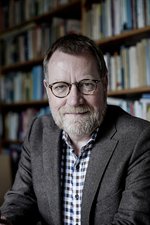
Knud Aarup holds a MA in political and social science. He is chairman of the Board of the Danish Social Welfare Society (the Danish member of ICSW) and chairman of the Board of local Red Cross Branch in Aarhus, Denmark and elected member of The National Council for Volunteering. He is former CEO of the Danish National Board of Social Services and has previously worked as CEO for Employment and Social Services in one of the largest cities in Denmark. He is engaged in the public debate on social welfare in Denmark and acts as an independent agent in the development of a future welfare society. Knud has authored several books on the subject.

Lotte Bøgh Andersen professor of Public Management and Leadership at Aarhus University, Denmark, and The Danish Centre of Applied Social Science, Denmark. Her work focuses on leadership in public and private organizations, especially motivation and performance, leadership strategies, professional norms and economic incentives. Her research is based on experiments, register data, surveys, interviews and observation. She is a board member of Public Management Research Association and also acts as a co-director of PSG III (Public Personnel Policies) within EGPA. She is a member of the Danish National Leadership Commission and co-editor of several international journals. Her research is published in the best public administration journals such as Journal of Public Administration Research and Theory, Public Administration Review, Public Administration, Public Management Review and International Review of Administrative Sciences, and she has also published book chapters on leadership experiments, public personnel policies and incentive systems (e.g. Cambridge University Press). She also publishes Danish books and articles about leadership and management and delivers a lot of public speeches to make sure that the research-based knowledge is used in practice.
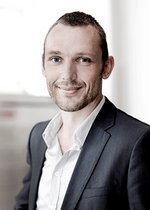
Simon Calmar Andersen is Professor at the Department of Political Science and director of TrygFonden's Centre for Child Research at Aarhus University. His research examines different aspects of political institutions, and budgeting and management strategies and their impact on organizational performance, especially within education. He has published work in Proceedings of the National Academy of Sciences, American Journal of Political Science, and The Journal of Public Administration Research and Theory among others. He is member of the Research Advisory Boards for The Danish National Centre for Social Research (SFI) as well as for The Public Management Evidence Lab, City University of Hong Kong. He was appointed member of the chairmanship of the national Council for Evaluation and Quality Assessment of Public School (The School Council) that gives advice to the Danish Minister of Children and Education in 2009-13. During his post doc. he also served as manager at the Municipality of Aarhus.
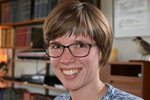
Michelle Askholm received a B.Eng. degree in Healthcare Technology from Aarhus University School of Engineering in January 2014. Since graduating in 2014, Michelle has been working there as engineer and certified PRINCE-2 project manager at Center for Assisted Living Technology. Michelle’s main area of interest is use of technology and especially robots for care and rehabilitation. Michelle has now for almost two years together with Birgitte Halle been working with social robots as a way to postpone loss of memory and dementia for the elderly in Aarhus.
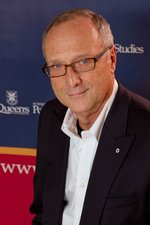
Keith Banting is Stauffer-Dunning Fellow in the School of Policy Studies and Professor Emeritus in the Department of Political Studies at Queen’s University. His research has long focused on the politics of social policy and the politics of multiculturalism in Canada and democratic countries generally. Recent publications include Inequality and the Fading of Redistributive Politics (UBC Press 2015), co-edited with John Myles; and The Strains of Commitment: The Political Sources of Solidarity in Diverse Societies (Oxford University Press 2017), co-edited with Will Kymlicka. He is also co-director of the Multiculturalism Policy Index ( http://www.queensu.ca/mcp/ ). Dr. Banting is a member of the Order of Canada and a Fellow of the Royal Society of Canada, and holds an honorary doctorate from Stockholm University.

Lars Benjaminsen is a senior researcher at VIVE – The Danish Center for Social Science Research. Since 2006 he is also a member of the European Observatory on Homelessness under FEANTSA (European Federation of National Organisations working with the Homeless). He has conducted several studies on social marginalisation in Denmark and on social interventions for socially vulnerable groups. His research includes studies on social marginalization and family background, material and social deprivation amongst poor people and a study on social exclusion in Denmark. He is also responsible for conducting the nationwide homelessness counts in Denmark and has conducted studies on the Housing First approach in services for homeless people.

Claus Bjørn Billehøj is CEO of The Social Capital Fund (Den Sociale Kapialfond), established in Denmark in 2011.The Social Capital Fund invests capital and competences in companies that strive to combine social and commercial success to give those in the margins of society new opportunities to fulfil their potential. Recently, The Social Capital Fund has initiated a project aimed at creating more deep understanding of the consequences of technological development for those groups already on the edge of the labour market and the companies that create jobs for them. The project is accelerated in cooperation with a series of partners, among others The Danish foundation TrygFonden. Claus will present his view on how the future will influence those in the margins of society and how we can ensure that digitalisation can be a lever and not an obstacle for vulnerable groups.

Bente Bjørnholt is senior researcher at VIVE, The Danish Center for Social Science Research. Her research areas include leadership, motivation, performance management, and performance. Moreover, she has done research within quality and evaluation in public organization. Bente is a member of the Danish ministry of educations scientific steering committee concerning evaluation of the Danish school reform, and often she conducts research within education.
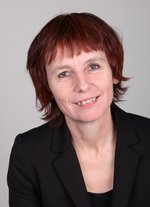
Dorthe Bleses (PhD) is Professor at School of Communication and Culture and TrygFonden’s Centre for Child Research at Aarhus University and part of the center management at TrygFonden’s Centre for Child Research. Her research focuses on trajectories of early language and school readiness, the development and evaluation of early curricula in daycares, implementation of interventions and professional development, learning environment in daycares and homes, and development of assessment instruments. She has published work in Child Development, Early Childhood Research Quarterly among others. She has received several external grants and has extensive experience in research management of large scales studies that involve close and complex research-practice collaboration. She is member of the Executive Board for International Association for the Study of Child Language, and the MacArthur-Bates Communicative Development Inventories and a number of expect groups among other for the Norwegian Research Council.
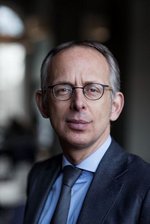
Mark Bovens is a professor at the Utrecht University School of Governance in the Netherlands. He studied Law, Political Science, and Philosophy at Leiden University and at Columbia University Law School in New York. He has published more than twenty monographs and edited volumes in the area of politics, government, and public policy. He is a member of the Scientific Council for Government Policy, the strategic think-tank of the Dutch cabinet. Some of his recent books are: Mark Bovens & Anchrit Wille, Diploma Democracy: The Rise of Political Meritocracy, Oxford: OUP 2017; and Mark Bovens, Robert Goodin & Thomas Schillemans (eds.),The Oxford Handbook of Public Accountability, Oxford: OUP 2014.
Stefan Boye is a PhD student in Political Science at Aarhus University. In his thesis, he is investigating and conceptualizing managerial autonomy and how it relates to performance in private and public organizations. He focuses on the educational sector, and does so with both quantitative and qualitative methods in a comparison of public and private public schools and secondary schools.
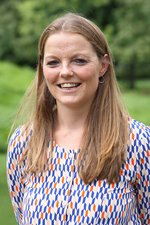
Karen N. Breidahl (knb@dps.aau.dk) is a political scientist and associate professor at Department of Political Science and Centre for Comparative Welfare Studies, Aalborg University. She is author of a number of international articles and book chapters on ethnic diversity and immigration in a Scandinavian welfare state context. Recent articles includes ‘Scandinavian exceptionalism? Civic integration and labour market activation for newly arrived immigrants’ (Comparative Migration Studies, 2017, 5, 2), ‘Shared Values Promote Social Cohesion? If so, Which? Evidence from Denmark’ (European Political Science Review, 2017 – together with Nils Holtug and Kristian Kongshøj) and ‘Bringing Different States in: How Welfare State Institutions can possibly influence socio-cultural dimensions of migrant incorporation’ (Nordic Journal of Migration Research, 2018 in press – together with Barbara Fersch).
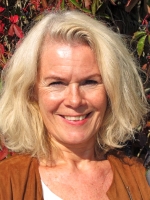
Grete Brochmann is professor of sociology, Department of Sociology and Human Geography at the University of Oslo. She has published several books and articles on International migration; sending and receiving country perspectives, EU policies, welfare state dilemmas as well as historical studies on welfare policy and immigration. She has served as a visiting scholar in Brussels, Berkeley, and Boston. In 2002 she held the Willy Brandt visiting professorship in Malmo, Sweden. She has been head of two national commissions on immigration and the sustainability of the Norwegian welfare model. Brochmann has held various positions in the Norwegian Research Council and she is member of The Norwegian Academy of Science.
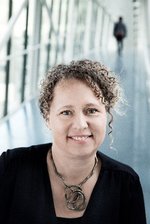
Dorte Caswell is Associate Professor, Head of Section at the Department of Sociology and Social Work, Aalborg University (Copenhagen Campus) and Head of SAB (Social Work at the Frontline of Social and Employment Policy) at Aalborg University, Denmark. Her current research focuses on an interest in bridging political science and sociological approaches in understanding social work practice. Research interests include welfare state developments especially organizational and professional aspects of this, as well as understanding the implications for the most vulnerable clients. The research is informed by a theoretical perspective paying attention to the translation of policy in interaction at the frontline of the welfare state in meetings between clients and professionals. See http://personprofil.aau.dk/117637 for more information.
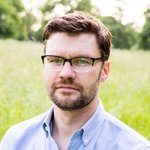
Dr. Oliver S. Curry is a Senior Researcher, and Director of the Oxford Morals Project, at the Institute of Cognitive and Evolutionary Anthropology, University of Oxford. His research investigates the nature, content and structure of human morality, using a range of techniques from philosophy, experimental and social psychology and comparative anthropology. Oliver’s work argues that morality is best understood as a collection of biological and cultural solutions to the problems of cooperation and conflict recurrent in human social life. He has tested this theory of ‘morality as cooperation’ by means of a comprehensive cross-cultural survey of the moral values of 60 traditional societies, and has developed a new psychological measure of moral values.
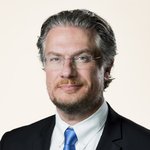
Henrik Dahl has been a member of the Danish parliament for the Liberal Alliance since 2015. He is spokesman for foreign affairs, education, research and liberalization of the public sector. Furthermore, he is vice Chairman for the education and research committee. Henrik Dahl has a Master’s degree in sociology from the University of Copenhagen. He holds a M.A. in Communications from the University of Pennsylvania and a Ph.D. from Copenhagen Business School. Before he was elected member of the parliament, Henrik Dahl has been an employee at CBS, RUC and AC Nielsen. Furthermore, he has appeared on television and radio as a debater, as well as he is the author of several books on sociology and politics.
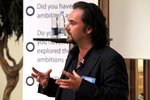
Carl-Johan Dalgaard is a Professor of Economics and the University of Copenhagen, and part of the Chairmanship of the Danish Economic Council. He is a Research Fellow of CEPR (London), an External Associate of CAGE (Warwick) and an associate editor at Journal of Economic Growth. His main research interests are economic growth, economic development, and economic history.

Camilla Bjerre Damgaard is program manager at the Egmont Foundation. Every year the foundation donates approx. DKK 100m to philanthropic activities in Denmark and Norway. The Egmont Foundation works to safeguard children and young people against “modern poverty” – the lack of learning and life skills. Camilla has been in charge of many of the recent bigger investments of the foundation targeted at e.g. children placed in care and early childhood and comprises both public sector, private sector and civil society. Before joining the foundation, Camilla was associated partner in a consultancy firm and head of secretariat at The Metropolitan University College. She is a graduate of political science from University of Aarhus.

Finn Diderichsen MD, PhD is professor emeritus at University of Copenhagen and was in 1980s and 1990s professor in social epidemiology and health policy research at Karolinska Institutet in Stockholm. His research has been focused on causal mechanisms generating health inequalities and policies to tackle them. He chaired the Danish working group on social determinants and policies to deal with the health divide. He is currently gust professor at Oswaldo Cruz Foundation in Brazil.
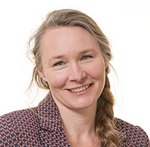
Liv Egholm is Associate Professor in cultural theories and analyses of organizational and institutional fields at Department for Business and Politics Copenhagen Business School. She is co-organizer of the Egos SWG on Organizing in and through Civil society: Perspectives, Issues, Challenges (2019-2023). She is currently the co-director of a larger research programme on “ Civil society in the shadow of the state” (Cistas). The project analyses the Danish CS from historical, sociological and political perspectives, including the role philanthropy and voluntariness have played in relation to the traditional functions of the welfare state, and to what extent CS has contributed to ensuring cohesion in society as well as the retention and development of specific democratic traditions and organisational forms. Her areas of research interest draw on pragmatism, cultural history and conceptual analysis to analyse notions and practices of “the common good”, gift-giving and the blurred lines of state, market and civil society.
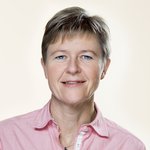
Josephine Fock is co-founder of the Danish political party ‘Alternativet’, and she was elected Member of the Parliament in 2015. Josephine Fock is rapporteur for finance and economy, release of the public sector, new Danes and refugees, citizenship, legal policy and the Danish constitution. She has a Master’s degree in law from Aarhus University, and before she was elected member of the parliament, Josephine Fock worked as civil servant in the trade union. Most recently she was head of secretariat at OAO, where she was responsible for negotiation the collective agreements for public employees.
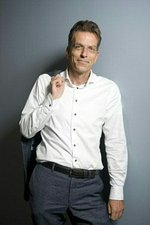
Harry Garretsen has been Professor of International Economics & Business at the University of Groningen since 2008. Alongside an impressive academic career, as attested among other things by his appointment as fellow at the University of Cambridge and his earlier professorial appointments at Radboud University Nijmegen and Utrecht University, he has always been actively concerned with economic policy and policy advice. He worked at De Nederlandsche Bank and was deputy crown-appointed member of the Social and Economic Council of the Netherlands (SER) from 2004 to 2014. For many years he was a member of the Advisory Board of the CPB Netherlands Bureau for Economic Policy Analysis. He gained management experience as Dean of the Faculty of Economics and Business in Groningen. He is also a member of the Supervisory Board of the Waarborgfonds Sociale Woningbouw (WSW) and the Bank Council, the advisory body to the Governing Board of De Nederlandsche Bank. His research field is international economics and macro-economics, with a particular focus on where companies choose to establish themselves. Both at home and abroad, Garretsen is regularly asked to act as an expert or contract researcher. In recent years, for example, he has worked for the ministries of Foreign Affairs and Finance, the Bundesbank, the EU and the World Bank. Through the universities of Groningen and Cambridge he has gained broad experience with executive education, and he takes part regularly in the public debate on economic issues, including via the Me Judice forum, where he is an editor-in-chief.
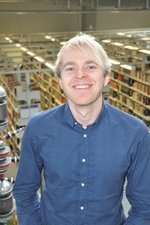
Julian L. Garritzmann is a Senior Researcher in Political Science at the University of Konstanz, Germany, and the University of Zurich, Switzerland. Julian has held Visiting Scholar positions at Harvard, Duke, and Rutgers. Julian’s research areas are comparative political economy, welfare state research, party politics, public opinion, and legislative studies. His book on the "Political Economy of Higher Education Finance“ (Palgrave Macmillan) received the dissertation award by the German Political Science Association (DVPW) and the ESPAnet/JESP's Doctoral Researcher Prize. It was also shortlisted for the Deutscher Studienpreis. Julian has published articles in the Journal of European Social Policy, the Journal of European Public Policy, the Journal of Legislative Studies, PS: Political Science and Politics, and West European Politics. In his talk, Julian will present research from an ongoing book project on public opinion and social investment policies, drawing on a large, representative public opinion survey, as well as on case studies in eight European countries.
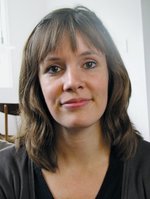
Laura Gilliam is Associate Professor at the Department of Educational Anthropology, Danish School of Education, Aarhus University. Her research concerns children, youth and the school institution, with a specific focus on identity, ethnicity, gender, institutional ideals and civilizing practices. Her publications include: Gilliam, L. & E. Gulløv (2017), Children of the Welfare State. Civilising practices in schools, childcare and families. London: Pluto Press. Gilliam, L. (2015) Being a good, relaxed or exaggerated Muslim: Religiosity and masculinity in the social worlds of Danish schools. In: M. Sedgwick (ed.): Making European Muslims: Religious socialization among young Muslims in Scandinavia and Western Europe. New York: Routledge. Gilliam, L. and E. Gulløv (2014) ‘Making children social: civilising institutions in a welfare state’. Human Figurations 3(1): 1–15. Gilliam, L & E. Gulløv (2012) Civiliserende Institutioner. Om idealer og distinktion i opdragelse. Aarhus: Aarhus Universitetsforlag. Gilliam, L. (2009) De umulige børn og det ordentlige menneske. Identitet, ballade og muslimske fællesskaber blandt etniske minoritetsbørn. Aarhus: Aarhus Universitetsforlag.
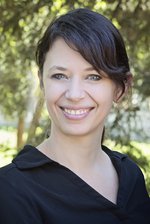
Jane Gingrich is an associate professor of comparative political economy at the University of Oxford. Her main research interests involve comparative political economy and comparative social policy. In particular, her work focuses on the politics of market oriented reforms in the welfare state, and the politics of institutional change more generally. Her more recent work has focused on the consequences of marketization and retrenchment on public attitudes and voting behavior and the changing political coalitions around the welfare state, asking how changes in the structure of the state have reshaped the political demands that citizens put on it. She is now embarking a new project on educational reform in the OECD from 1945-present, funded by the European Research Council, which looks to examine changing educational structures at the country and regional level.

Peter Graeff is Professor at the Faculty of Faculty of Business, Economic and Social Science at Kiel University. Prior coming to Kiel, he was an assistant professor at Goethe University, Frankfurt, and Düsseldorf University. He received a diploma in economics and a PhD in psychology from Bonn University. His research focusses on empirical research methods and social capital research in its positive (e.g. social trust) and its negative sense (e.g. corruption). Recent publications appeared among others in Plos one, European Sociological Review, Quality & Quantity, and the Journal of Mathematical Sociology
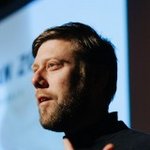
Hendrik-Jan Grievink is researcher and designer at Next Nature Network, the international network that stimulates debate around the changing relation between people, nature and technology through publications, events and multidisciplinary, research-based design projects. Grievink co-edited and designed the award-winning In Vitro Meat Cookbook that explores the future of lab grown meat through 45 speculative recipes as well as the Pyramid of Technology, a conceptual model and design tool that visualizes ‘how technology becomes nature’. Grievink currently leads the Reprodutopia project, a speculative design project on emerging reproductive technologies such as artificial wombs and their potential impact on the way we make babies, experience intimacy and build relationships in this next nature.
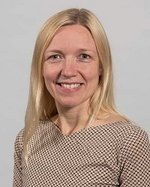
Sandra Groeneveld is a Professor in Public Management at the Institute of Public Administration of Leiden University and co-director of its Leiden Leadership Centre. She teaches in the fields of public management and leadership as well as on research methodology, particularly on research design and survey research methods. Her research interests include the structure and management of public organizations, focusing particularly on questions of representative bureaucracy, diversity and inclusion, leadership and organizational change. She has published widely in international academic journals and contributed to books on public management and diversity (e.g. 2016, Routledge). She is also an associate editor of the international academic journal Perspectives on Public Management and Governance (Oxford University Press).
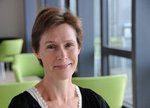
Eva Gulløv is Associate Professor at the Department of Educational Anthropology, Danish School of Education, Aarhus University, Denmark and Professor at the Department of Education at University of Agder, Norway. Her research concerns children’s societal positions and social relations as well as processes of inclusion and exclusion within educational institutions. Her recent publications include Gilliam, L. & Gulløv, E. (2017), Children of the Welfare State. Civilising practices in schools, childcare and families. London: Pluto Press 2017; Gulløv E. & Skredal, L. L. (2016) ‘Ethnographic studies of young children’. In J. Prior & J.V. Herwegen, Practical Research with Children. London: Routledge 2016. Gilliam, L. and E. Gulløv (2014) ‘Making children social: civilising institutions in a welfare state’. Human Figurations 3(1): 1–15. Gulløv, E., ‘Welfare and Self Care. Institutionalized Visions for a Good Life in Danish Day-care Centres’, Anthropology in Action, vol. 18, 3 (2011): 21–32. Bundgaard, H. and E. Gulløv (2008) ‘Targeting immigrant children: disciplinary rationales in Danish pre-schools’. In: N. Dyck (ed.) Exploring Regimes of Discipline: The Dynamics of Restraint. New York: Berghahn.
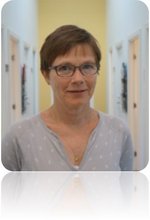
Birgitte Halle is educated Occupational Therapist and certified PRINCE2 project manager. Birgitte has many years of experience within test and implementation of different types of helping aids in a real life context. She has in the last 6 years been specialized in the area of assisted living technology including social robots in a practice near context.
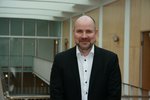
Erik Kaastrup Hansen is Managing Director of the Department of Social Affairs and Employment in the Municipality of Aarhus. A position he has held since April 2008. Erik has many years of experience within public management. Previously, he has held positions as managing director of the Department of Social Affairs, Employment and Health in the Municipality of Herning (2005-2008) and before that in the Administrative Division of Education, Social Affairs and Psychiatry in Ringkøbing (1998-2004). In addition to this, Erik has been appointed to several positions of trust. He serves as a board member at the Union of Social, Health and Employment leaders and chairman of the board in the region of MidtJylland. Erik is the current chairman of Center for Effective Innovation in Social Services, and a member of Advisory Psychiatry Committee of the Danish Health Authority. Erik Kaastrup-Hansen was born and raised in Bedsted, Thy. He graduated from Aarhus University in 1992 with an advanced degree in political science.
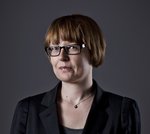
Gitte Sommer Harrits is associate professor at in sociology and methods at Department of Political Science, Aarhus University. Her research covers social class, categorizations, street-level bureaucracies and professionalism. In 2016-2017 she was visiting professor at Institute for Policy and Social Research, University of Kansas, conducting a research project on class identities at the frontline of American Schools. She has published widely on both social class, street-level bureaucracy and professionalism, including a book (in Danish, with co-author Marie Østergaard Møller) on Prevention and Frontline Work among teachers, pedagogues and health nurses in Denmark. Methodologically, she works with different types of both qualitative and quantitative data, often in mixed methods designs. In 2018 she was appointed as member of the Danish Accreditation Council for Higher Education.
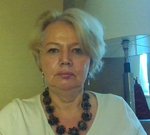
Cathrine Hasse is a professor of Future technology, Culture and Learning at Aarhus University, department of Educational Anthropology. She is heading the research program Future Technology, Culture and Learning and her areas of study include robots, co-bots, posthumanism and cultural learning processes.
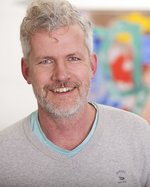
Oliver Heath is Professor of Politics and co-director of the Democracy and Elections Centre at Royal Holloway, University of London. He is the editor of Electoral Studies. His main research interests include elections and voting behaviour, social class and inequality. He has a particular interest in both UK elections and Indian elections and has published his work in the Journal of Politics, British Journal of Political Science, European Journal of Political Research, Political Behavior, and Political Studies among others. He has received funding for his research from the ESRC, British Academy, and Nuffield Foundation, and has written commissioned reports for the Joseph Rowntree Foundation. He tweets as @olhe.
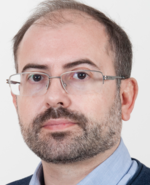
Francisco Herreros is Senior Researcher at the Spanish National Research Council (CSIC) in Madrid. He has been Fernard Braudel Senior Research Fellow at the European University Institute (Florence), Santander Fellow at St. Antony’s College and Visiting Fellow at All Souls College (University of Oxford). His research interest include trust and social capital, especially the role of institutions in the development of interpersonal trust, and political violence, especially the analysis of terrorism, civil wars and state repression. He has published extensively on trust and political violence in Comparative Political Studies, Journal of Conflict Resolution, Journal of Peace Research, Rationality and Society, Political Studies, Politics and Society, Explorations in Economic History and Economic History Review, among other academic journals. He has also published the monograph The Problem of Forming Social Capital: Why Trust? (Palgrave, 2008).
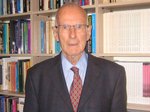
Michael Hill is Emeritus Professor of Social Policy at the University of Newcastle. Earlier he held posts in the Universities of Bristol, Oxford and Reading and was a civil servant in the National Assistance Board. After retiring from Newcastle he held visiting professorships at Goldsmiths College, Queen Mary College and the London School of Economics in the University of London and at the University of Brighton. Michael has written and researched widely on social policy and on the making and implementation of public policy and was given the Lifetime Achievement Award by the Social Policy Association in 2009. He is nearing completion of Exploring the World of Social Policy (with Zoë Irving of the University of York). His commitment to the public sector has been evident not just in his research and teaching, with a strong emphasis social security, social work and social care, but also in participation in local government and in membership of the Council on Tribunals (1991 to 1997). He is proud that his children and their partners have pursued careers in local government.
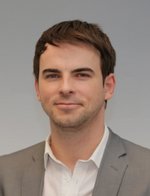
Alexander Horn is an Assistant Professor at the Department of Political Science at Aarhus University, where he has been employed since 2014, and is affiliated with the Social Science Research Center Berlin (WZB). He conducted his PhD studies at the Berlin Graduate School of Social Sciences and Duke University. He tries to strengthen our understanding of the complex interplay of the political and economic causes of the privatization, conditionalization, de-universalization, and modernization of welfare (states). In his most recent book Government Ideology, Economic Pressure, and Risk Privatization. How Economic Worldviews Shape Social Policy Choices he shows that the impact of the economic pressures often held responsible for the marginalization of politics and ideology is in fact conditional on the specific ideological configuration.
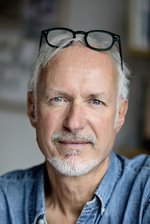
Professor in Social- & Personality psychology at the Department of Psychology and Social Sciences, Aarhus University. Specialist in evolutionary psychology, behavioral psychology, ethology and comparative psychology. Has conducted sharing experiments with several primate species. Latest publication: Man - The Aesthetic Animal (in Press - Oxford University Press).
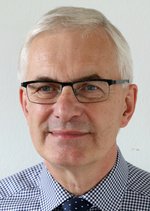
Niels Højberg is currently chief executive in the City of Aarhus, Denmark, and has been so since 2008. Prior to that he was the Managing Director of Aarhus University. In his career, he has had positions as the top official in regions and municipalities and had his first job in the Ministry of Finance in Copenhagen. He holds a Master’s Degree in Political Science and BA in Philosophy from Aarhus University and an M.Phil. from Glasgow University. From 2013-2015 he was the Chairman of the Danish Association of Local Government Executives. Aarhus is the second city in Denmark and has been appointed European Capital of Culture in 2017 and European Volunteering Capital in 2018. Niels Højberg has been the co-author of a number of publication mainly on leadership in the public sector and celebrating the 500 years Reformation anniversary in 2017 he was invited to formulate 3 thesis concerning labor presented in the book “95 new thesis".
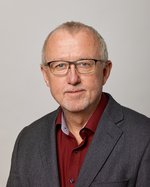
Ole Kiil Jacobsen is Director at the Department of Children and Young People in the City of Aarhus. He holds a master's degree in political science from Aarhus University and has been employed in various positions at the Department of Children and Young People since 1986. As Director, he is a member of the strategic management at the Department of Children and Young People with special responsibility for supporting the development of quality in the services provided for the children and young people in the municipality. This both includes the quality of early health care and the quality in the care and teaching services provided in the public daycare centers, kindergartens, schools and leisure clubs.

Jan Germen Janmaat is a Reader in Comparative Social Science at UCL Institute of Education. His research interests are wide ranging, including themes, such as inequality, social cohesion, civic culture and the integration of migrant communities. Since becoming Reader his research focuses more narrowly on the role of education in promoting civic values, a catch-all term that includes outcomes such as tolerance, trust and political engagement. These values are considered to be the cultural prerequisites of democracy by many scholars. Educational characteristics that have his particular attention in terms of how they influence civic outcomes include the social and ethnic composition of schools, educational tracking, the curriculum, distinct pedagogies and democratic practices in schools. His research on the effect of the ethnic composition of classrooms on attitudes towards immigrants has been widely published in esteemed journals, such as European Sociological Review, Social Science Research and Journal of Ethnic and Migration Studies and received a lot of media coverage. More recently he has published on the influence of educational tracking (i.e. assigning school children to academic and vocational tracks) and of school democratic practices on political engagement. Currently he is writing a book with Bryony Hoskins on the impact of education on social inequalities in political engagement. In 2013 he was awarded a British Academy Mid-Career Fellowship for a project on using longitudinal data to assess the net effect of education on civic outcomes. In September 2015 he became co-editor of Compare: A Journal of Comparative and International Education.
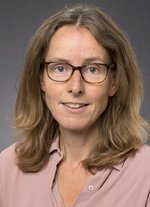
Mette Frisk Jensen holds a position as researcher and leader of the website on Danish history “danmarkshistorien.dk” at the Department of Culture and Society at Aarhus University. Before this she held several postdoc-positions at the same department. In September 2011 she received a two year fellowship from the Danish Research Council (FKK) to do a project on corruption in Denmark. Since September 2012 she has also been part of the project Anticorruption Policies Revisited (2012 – 2017) financed by the European Commission’s Seventh Framework Program through the Quality of Government Institute at University of Gothenburg. The primary focus of the work here was the study of anti-corruption in Denmark 1660 – 1866. During her doctoral studies at the Department of History, International and Social studies at Aalborg University she specialized in corruption and the ethics of public office amongst Danish civil servants in the 19th century.
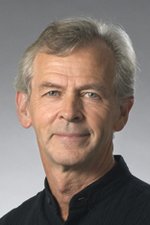
Uffe Juul Jensen is Professor of philosophy, Department of philosophy and history of ideas, School of Culture and Society, Aarhus University and visiting professor at Department of Global Health and Social Medicine, King’s College London. Uffe has for more than 40 years been involved in research in philosophy of science and technology in general and philosophy of biology and medicine in particular. He lectured on philosophy of evolution at Oxford University 1976, from 1972 until 2017 he was responsible for developing courses in philosophy of medicine and other health sciences at Health Faculty, Aarhus University. From 1990 he was director of an interdisciplinary research project sponsored by the National research council for the humanities: Health, Humanity and Culture. For the last 10 years he has participated in various interdisciplinary research projects (including Hope and risk in biomedicine and health promotion and The Humans Turn). He has published and edited a number of books and published articles within many different philosophical fields.
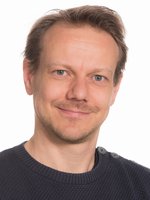
His main research areas are seizure detection, bio signal analysis, seizure alarm systems. Currently he is working as a post.doc. researcher in Department of Neurophysiology, Aarhus University Hospital with main focus on seizure detection of epileptic seizure using portable ECG devices. He also has interests in programming and automatic computer analysis of different bio signals in order to help diagnosis and analysis doctors and medical staff. He received his PhD in 2015 which was based on research on seizure detection of bio signals (PhD entitled: Detecting epileptic seizures with hart rate variability (HRV) and near infrared spectroscopy). He originally studied biomedical engineering at Aarhus University, in which he received his master degree in 2010.
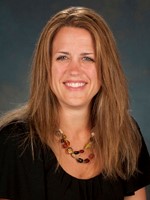
Professor Justice’s research primarily focuses on young children who exhibit developmental vulnerabilities in language and literacy acquisition. Much of her research considers the effects of teacher or parent implemented interventions on children’s learning, including the effective use of storybooks. She is also interested in the state of classroom quality in early childhood and how various aspects of quality affect children’s gains within the classroom. She has received the Annie Glenn Leadership Award in Speech-Language Pathology, the Editor’s Award (from American Journal of Speech-Language Pathology), the Early Career Publication Award (from Division of Research, Council for Exceptional Children), the Erskine Fellowship (from University of Canterbury), and the Fulbright Scholar Award. Dr. Justice has served as the co-director of Risk and Prevention in Education Sciences Interdisciplinary Doctoral Training Program, and as an associate professor at the University of Virginia, Curry School of Education. Dr. Justice has also received the Presidential Early Career Award in Science and Engineering (from President G. W. Bush).
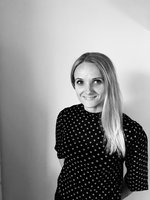
Heidi Vad Jønsson, PhD, is associate professor in welfare history at SDU, Institute of History and Danish Centre for Welfare Studies (DaWS). Her main research interests are Danish political history, welfare state history and immigration and integration policy. Her recent publications include a book published May/June 2018 in the series 100 Danmarkshistorier (100 Denmark-histories) Indvandring i Velfærdsstaten (Immigration in the welfare state) and a monograph forthcoming June 2018 on the political history of integration Fra lige muligheder til ret og pligt. Socialdemokratiets integrationspolitik i den moderne velfærdsstats tidsalder, 1960’erne til 2010’erne. (From equal opportunities to rights and duties. Social Democratic integration policy in the age of the modern welfare state. 1960s to 2010s). In her on-going research, which is part of the project Uses of Literature, The Danish National Research Foundation, Heidi Vad Jønsson is exploring uses of the Nordic Literature Prize as an element of Nordic cultural policy as well as “poets in the political” (a biography on Julius Bomholdt).

Lars Bo Kaspersen, (b. 1961), BA (Copenhagen), MA (Copenhagen), MA (Sussex), PhD (Aarhus), Professor, Formerly Head of the Department of Political Science, University of Copenhagen and former Head of the Department of Business and Politics, Copenhagen Business School. Has published widely on social theory and political sociology. Author of among other publications ‘Denmark in the world’. Kaspersen’s research areas are state formation processes in Europe, the transformation of the welfare state, civil society (including the idea of associative democracy), social theory, in particular relational theory. He recently received a grant from the Carlsberg Foundation to study ‘the civil society in the shadow of the state’ focusing on the role of civil society in the development of the Danish welfare state and its future. Kaspersen teaches history, politics, and sociology.
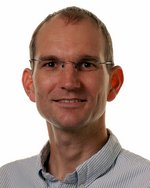
Preben Kidmose is an Associate Professor at Department of Engineering at Aarhus University. He is working within electrical and biomedical engineering, with focus on signal processing and machine learning in medical devices, medical instrumentation and sensors, and system engineering/design of medical devices. He holds a B.Sc. degree in electrical engineering from University of Southern Denmark (1995), and a M.Sc. and Ph.D. degree from Technical University of Denmark (1998 and 2001 respectively). He has been working in medical device industry for 10 years, and been an associate professor at Aarhus University since 2011.
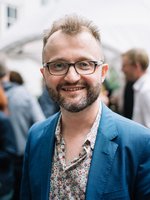
Lasse Home Kjaeldgaard is Professor of Danish Literature at Roskilde University, Denmark, and a leader of the Semper Ardens research project Digital Currents. He is a member of the Danish Academy of Letters and former Director of the Danish Society for Language and Literature. He has authored several monographs on Danish literary and cultural history, most recently Meningen med velfærdsstaten: Da litteraturen tog ordet - og politikerne lyttede [The Meaning of the Welfare State: When literature took the floor - and politicians listened], Gyldendal, 2018.
Eva Knies is Associate Professor at Utrecht University School of Governance. Her research interests are public leadership, public service performance, and human resource management (HRM) in the public sector (in particular in education and healthcare). In 2015 Eva received a grant from the Netherlands Organisation for Scientific Research for conducting a 4-year study of public service performance and people management in various national (NL, DK, UK) and sectoral (healthcare, education) contexts. The project is entitled 'Capturing the nature of public value creation'. Eva has published in top journals in the fields of public administration/management and HRM, including Public Administration Review, Public Administration, and Human Resource Management Journal. She often uses quantitative (surveys and scale development techniques) or mixed methods.

Jon Kvist- jkvist@ruc.dk Jon Kvist is professor of European Public Policies and Welfare Studies at the Department of Social Science and Business, Roskilde University. He was professor from 2008-2014 at the Centre for Welfare State Research (CWS) at the University of Southern Denmark, Odense and has also worked at SFI – The Danish National Institute of Social Research. Kvist has published widely on the Nordic welfare model, social investments, Europeanization and comparative methods. He has chaired international research projects and been member of the Norwegian Research Councils’ welfare, work and migration program, the Scottish government working group on welfare and the Danish government Commission on Unemployment Insurance, and is national coordinator in the European Commissions Expert Network on Social Policy.
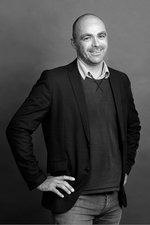
As chief advisor at Seismonaut, Brian is responsible for activities in the field of business and growth policy and advises on instruments, interaction, export and investment promotion, strongholds etc. Brian has been working as a consultant in business and growth policy since 2003 and is one of the country's leading analysts and advisers in the field. Growth takes place in the intersections of the meeting between strongholds and through competencies and business models that arise in a world where drivers include digitization, sharing-economy, sustainability etc.
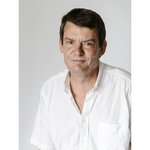
Jørgen Elm Larsen is associate professor (former professor MSO) at the Department of Sociology, University of Copenhagen. He has a long-standing research interest in social policy and social vulnerability in the Danish society; especially poverty and social exclusion and their relation to health issues. Three of his main publications in relation to this topic are: Poverty in the welfare state/Fattigdom i velfærdsstaten (Samfundslitteratur 1989, with John Andersen), Poverty and social exclusion/Fattigdom og social eksklusion (Socialforskningsinstituttet 2004) og Poverty, deprivation and coping/Fattigdom, afsavn og coping (Hans Reitzels Forlag 2015, with Maja Müller et al.).
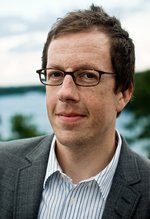
Lars Thorup Larsen, PhD, is Associate Professor at the Department of Political Science, Aarhus University. He works on the intersection between public policy and the sociology of knowledge with a special interest in health policy. Previous research projects have concerned topics such as morality politics, smoking bans, the history of public health campaigns, prevention, and neoliberal policymaking in health care. He currently works on a research project on the professional authority of doctors as well as a project on the history of health conceptions in the World Health Organization. His work is published in books, such as Morality Politics in Western Europe: Parties, Agendas and Policy Choices (with I. Engeli & C. Green-Pedersen, Palgrave) and journals like Journal of European Public Policy, Journal of Professions and Organization, Critical Discourse Studies, Journal of Health Politics, Policy and Law, and Distinktion.
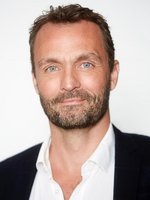
Nicolai S. Laugesen is Innovation & Portfolio Director at Falck A/S. Falck consists of three core business units: Ambulance, Employee Healthcare and Assistance. Falck has 37.000 employees and delivers services in 44 countries Nicolai works with public private partnerships and innovation in the Nordic countries and Germany. He is also part of the advisory board Member at Center for public-private partnership research (Center for forskning I offentlig-privat samspil). Nicolai will present his approach to working with cross-sectoral innovation and how we can create new services by combining technology, service design and user insights.
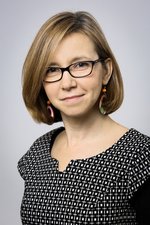
Natalia Letki is an Associate Professor at the Department of Political Science, University of Warsaw. She earned her DPhil in 2002 in Nuffield College, University of Oxford. She is interested in political behaviour of citizens and political elites, especially in the context of systemic transformation. She also works on ethnic diversity, social capital, civic and political participation, civic morality and trustworthiness. She was the first Polish recipient of an ERC StG in social sciences for the project “Public Goods through Private Eyes: Exploring Citizens’ Attitudes towards Public Goods and the State in East-Central Europe” (2009-2014). Her work has been published in the Journal of Politics, American Political Science Review, British Journal of Politics, Political Behaviour, Political Research Quarterly, Political Studies, Social Science Research.
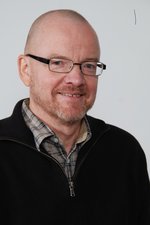
Jørn Loftager is associate professor in political sociology at the Department of Political Science, Aarhus University. His research has concentrated on the sociology of democracy as reflected in titles of books and articles such as “Democracy and the Public Sphere in Denmark”, “Deliberative Democracy and Political Ideology: Social Liberalism vs. Neoliberalism”, “Deliberative Democratic Governance”, “Deliberative Democracy and the Legitimacy of Basic Income”, “Citizens’ Income – a New Welfare State Strategy?” His main current interest is “the strange non-death of neoliberalism”. He finds it particularly intriguing and puzzling that neoliberalism has won hegemony in a Danish context considering the historical success of social-liberalism in Danish society. He has followed and contributed to the debate on basic income for several years.
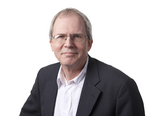
Professor, dr.phil. Anker Brink Lund er forskningskoordinator ved CBS Center for Civil Society Studies ved Copenhagen Business School, hvorhan bl.a. forsker i almennyttig værdiskabelse og filantropisk fondsvirksomhed. Før sin ansættelse som professor ved Copenhagen Business School i 2004 har han været tilknyttet Institut for Statskundskab ved Aarhus Universitet, Danmarks Journalisthøjskole, DRs forskningsafdeling, Kommunikationsuddannesen på RUC og journalistuddannelse ved Syddansk Universitet.
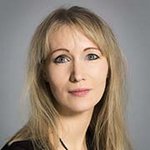
Christiane Mossin is a postdoctoral researcher at the Department of Business and Politics, Copenhagen Business School. She has a master’s degree in philosophy from the University of Copenhagen and a phD from Copenhagen Business School, the latter obtained on the basis of an interdisciplinary dissertation conducted in the intersection between law, political philosophy and philosophy of law. Her work owns to a continental philosophical and conceptual historical perspective and is directed towards contemporary social, political and legal issues. Her present research concerns the relationship between democracy and civil society and focuses, in particular, on forms and visions of collectivity.
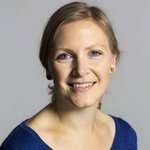
Anne Mette Møller is a PhD Fellow at the Department of Political Science, University of Copenhagen. Her research and teaching is anchored in public administration and organization theory, focusing especially on issues regarding knowledge and professional practice in public service delivery. She also has a keen interest in interpretive field research methods and organizational ethnography in particular. She is currently finalizing her PhD research project on evidence-based practice and changing professional norms in Danish child protective services, which is based on fieldwork in three municipal child protective agencies and interviews with national political actors. She has a background in Sociology, also from the University of Copenhagen, and has worked for several years as an analyst and evaluation consultant, primarily in the social policy area, before returning to academia.
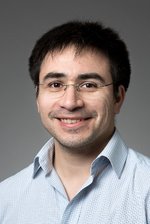
Nicolás Navarro-Guerrero is an Assistant Professor at the Department of Engineering at Aarhus University (Denmark). He specialised in embedded systems, applied artificial intelligence and robotics. His interested in the field of machine learning and artificial intelligence focuses on embodied and developmental cognition while his interest in robotics is particularly oriented towards academic/industrial partnerships for the development of knowledge intensive R&D solutions for socially relevant challenges including welfare, agriculture, disaster relief and humanitarian demining. More information under: https://nicolas-navarro-guerrero.github.io/
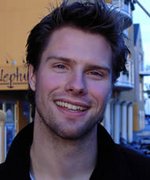
Associate professor, Research Unit for Robophilosophy, Aarhus University (DK) and cooperate researcher, the Hiroshi Ishiguro Laboratories, ATR (JP). Has published several papers and book chapters on human-robot interaction with focus on phenomenology and intercultural philosophy, android science/philosophy. Together with Johanna Seibt, he is coordinator of the Robophilosophy Conference Series and the TRANSOR Network (Research Network for Transdisciplinary Studies in Social Robotics).
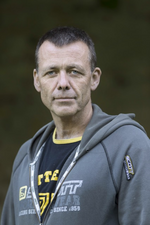
Carsten Obel is professor general medicine at AU engaged in research in children and youths mental and metabolic health for more tha 25 years based on registers and ad hoc cohorts. Current research is focused on population health and humanisation of health data with focus on co-creation and the use of technology for precision delivery of knowledge and health support. I am focused to contribute to develop the Nordic opportunities to inspire and frame future health services based on our unique ressources for development and demonstration of health solutions in a population setting.
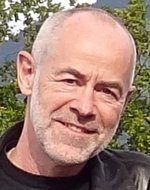
Finn Olesen is Associate Professor, Ph.D., at Information Studies, University of Aarhus, Denmark, where he teaches philosophies of the science and arts, and Innovation and Technology. His research interests are grounded in philosophical and sociological studies of science and technology, and in ethnographic studies of sociotechnical development of praxis in health care work. Recently he has become interested in affect studies and emotional responses to technological practice. He has published in Danish and international books and journals about sociotechnical practices in health care, philosophy of technology, and posthuman life.
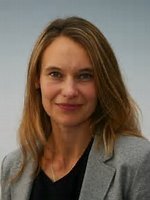
Helene Helboe Pedersen is associate professor at Department of Political Science, Aarhus University. She studies developments in political representation bridging literatures on interest groups, political parties and voters to understand the process of representation in Western Europe. In her current research project, she investigates the assumed personalization of politics and its consequences for democratic representation. Her work on these issues has been published in Legislative Studies Quarterly, European Journal of Political Research, British Journal of Sociology, and Parliamentary Affairs among other places.
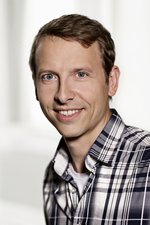
Michael Bang Petersen is Professor in political science at Aarhus University and is associated with Aarhus Institute for Advanced Studies. His research is on the importance of human evolutionary history for the formation of political attitudes.
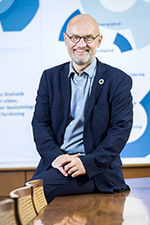
Niels Ploug is an economist and the Director of Social Statistics at Statistics Denmark since 2008. Before that, he worked for many years as the Research Director at The Danish National Institute of Social Research. He is also an associate professor at the University of Copenhagen, Department of Economics. He’s been engaged in research on the Danish Welfare State historically and in a comparative perspective as well as research on social and economic inequality in Denmark. This includes resent books (in Danish) on social inequality and social mobility and a Piketty inspired book on economic inequality in Denmark.
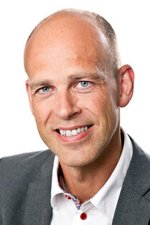
Jan Præstholm is the CEO of the Department of Children and Young People in the City of Aarhus. A position he has held since January 2017. Prior to this he was CEO in the City of Svendborg for eight years. Jan Præstholm has a professional background in teaching and he also holds a master’s degree in public management which has led him to different leading positions throughout the last 15 years. As CEO of the Department of Children and Young People Jan Præstholm is setting the strategic direction for the Department of Children and Young People to ensure high quality in the public daycare centers, kindergartens, schools and leisure clubs in the Municipality of Aarhus. A responsibility that includes 65.000 children and their parents - as well as 14.000 employees.
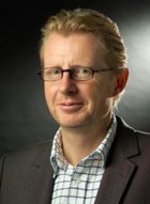
Michael Rosholm is professor of economics and specializes in applied econometric methods for causal analysis. He is also member of the management team of a large research center focusing on evaluation of policies aimed at helping children and youth – TrygFondens Centre for Child Research. He specializes in impact estimation and has published numerous papers on the effects of labour market and integration policies as well as policies aimed at children and youth
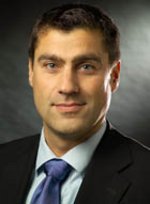
Philipp Schröder is Professor of Economics at Aarhus University and director of the Tuborg Research Centre for Globalisation and Firms at Aarhus BSS, Aarhus University, Denmark. Prior to joining Aarhus University, he was a Senior Economist at the think tank German Institute for Economic Research (DIW Berlin). He is a member of the Danish Government’s Disruption Council and serves at the Board of the Danish Competition and Consumer Authority. His research focuses on international economics and industrial organisation, frequently combining theoretical models and macroeconomic analysis concepts with detailed firm-level data. He has worked and published widely on economic policy, trade policy, productivity of international firms, globalisation, taxation and open source business models.
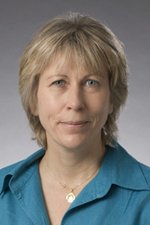
Johanna Seibt is Professor for philosophy of robotics and applied process ontology, at the Department for Philosophy and the History of Ideas at Aarhus University. Before coming to Aarhus University she taught for ten years at the University of Texas at Austin. She is the coordinator of the Carlsberg Semper Ardens Project “What Social Robots Can and Should Do—Towards Integrative Social Robotics,” member of the Aarhus Social Robotics Lab, and (together with Marco Nørskov) coordinator of the Robophilosophy Conference Series and the Research Network for Transdisciplinary Studies in Social Robotics. She argues that social robotics applications should be developed in close collaboration with researchers from the Humanities.
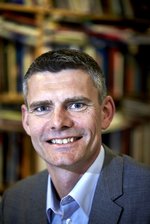
Peter Simonsen is professor of European literature and the Department for the Study of Culture and the University of Southern Denmark. Initially a scholar of British Romantic poetry, Wordsworth in particular, Simonsen has in the last decade studied more contemporary literature, both anglophone and Scandinavian. His research interest has mainly been ageing and old age in literature, especially in the context of the welfare state. This was the subject of his monograph, Lifelong Lives: Nursing home Novels and Retirement Stories from the Welfare State (2014) where he investigated the ways in which contemporary Danish fiction imagines and participates in reimagining at the level of society what it may mean and how it may feel to age in the contemporary moment. A more recent research interest is the literary representation of a new social class-in-the-making, the precariat. Consisting of groups traditionally belonging to different social strata that seem to have nothing in common new bonds of solidarity are beginning to be imagined across traditional divides in relation to basic experiences and feeling of exclusion and insecurity in ways that may portend new social transformations in the making.
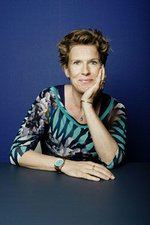
Janka Stoker has been Professor of Leadership and Organisational Change at the University of Groningen since 2003. In her work she has always combined academic research with practice. When working on her doctoral research at the University of Twente, she was also a freelance advisor to KPN and ADC. For many years she combined her role as senior managing consultant at Berenschot with her professorship, and as Vice Dean at the Faculty of Economics and Business she has had five years’ of first-hand experience of what it means to be a manager. Her research has always focused on questions that are both relevant to the academic world and of immediate interest to organisations. She frequently works on behalf of third parties, such as in projects with Ahold, De Nederlandsche Bank and Aedes. In her advisory role, she has advised large private and public organisations – such as ProRail, MeesPierson, the municipality of Groningen and Unilever – on issues of leadership and change. She was also a member of the ‘DNB culture change’ monitoring committee . As a member of the Advisory Board at the University of Twente and as Vice Dean of the Faculty of Economics and Business at the University of Groningen, she has gained substantial practical experience of the ins and outs of leadership. She is a sought-after speaker at conferences and on courses for managers and administrators. She also makes regular media appearances.
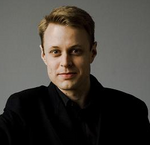
Rune Stubager, PhD, is professor at the Department of Political Science, Aarhus University. He is co-principal investigator of the Danish National Election Study and does research on public opinion and electoral behaviour. In particular, he conducts research on the influence of voters’ social background on their political attitudes and behaviour. Among other books he is a co-author of Paradoxes of Liberal Democracy, Princeton University Press (2014) and Oprør fra udkanten. Folketingsvalget 2015 [Rebellion from the Periphery. The Danish Parliamentary Elections 2015], Djøf Forlag (2017). In addition, he has published a range of articles in journals such as Political Behavior, British Journal of Political Science, European Journal of Political Research, British Journal of Sociology, Electoral Studies, Political Psychology, West European Politics, Political Studies, Scandinavian Political Studies, and Government and Opposition.
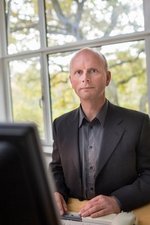
Gert Tinggaard Svendsen is a Professor of Comparative Politics, Department of Political Science and Government, Aarhus University, Denmark. PhD (Econ.) in 1996 and MSc (Pol.Sci.) in 1991. Minor in Law and English. In 1996, he was appointed assistant professor by the Department of Economics, Aarhus School of Business, where he later became associate professor. In July 2004, he was appointed full professor at the Department of Political Science, Aarhus University. Svendsen has been a visiting scholar at the University of Maryland, Department of Economics (1994-95), where he worked with his PhD supervisor, Professor Mancur Olson. Later, he became a member of the steering committee on social capital in the World Bank (1997-99) headed by Mancur Olson and became then director of the Danish Social Capital Project (SoCap) (2002-2005). Svendsen is active within the public choice societies, e.g. member of the editorial board of Public Choice (2004-2009), Chair of the Danish Public Choice Association (2004-2006), and a member of the Executive Board in the European Public Choice Society (2014 – 2017).
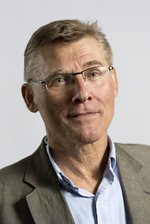
Jes Søgaard, Chief Economist at Danish Cancer Society, professor of health economics at University of Southern Denmark and University of Aarhus, Health. Jes Søgaard has been a health economist for almost forty years and worked with health programme assessment, health policies, quality improvement, health technology assessment, cost-effectiveness and access issues in health care. Currently he is involved in studies of cancer medicine markets and extreme price increases threatening access to cancer care in Europe and active in the European Fair Pricing Network.
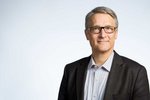
Torben Tranæs is Research Professor and Executive Director of Research at VIVE - The Danish Centre for Social Science Research. Torben Tranæs has studied economics at the University of Copenhagen, London School of Economics, Tel Aviv University, and Northwestern University. Having received his Ph.D. in economics from the University of Copenhagen in 1994 he was Associate Professor at Copenhagen Business School and University of Copenhagen, professor at VIVE and Research Director at the Rockwool Foundation Research Unit, Copenhagen. Torben Tranæs’ research interests cover Migration and Integration of Immigrants, Unemployment Insurance, Labor Market Policy and Education, Workfare, Crime and the Labor Market, and Equality of Opportunities.

Samuel Thrysøe is an associate professor at the Aarhus University School of Engineering, where he teaches students in Healthcare Engineering. He has a background in Medicine and Engineering with a PhD in numerical simulations of blood flow in the carotid arteries. Current areas of interest include telemedicine, medical 3D printing, biomedical innovation, and regulatory approval of medical devices.

Thomas Skjødeberg Toftegaard (Former Thomas Toftegaard Nielsen) was born in Aarhus, Denmark in 1970. He received a M.Sc.E.E. degree (1995) and Ph.D. degree (1999) from Aalborg University, Denmark. From 1999 - 2009 Thomas Skjødeberg Toftegaard had an additional 10-year industrial R&D carrier within wireless and IP communication technology, primarily at L.M. Ericsson. During the period he held R&D positions ranging from design engineer to competence, R&D department and unit manager. I 2009 he was appointed professor in communication technology at Aarhus University, Denmark. In 2011, he was appointed Head of Department of Engineering, Aarhus University a position he holds today, where he is is responsible for the build-up of the newly established elite engineering science organization of Aarhus University.
Lars Tummers is Associate Professor at the Utrecht University, Utrecht School of Governance. His research interests are public management, leadership, and citizen–state interactions. When researching such topics, he often combines insights from psychology and public administration: developing a 'Behavioral Public Administration'. He has published in the top tier of public administration journals, including Public Administration Review, Public Administration and the Journal of Public Administration, Research & Theory. He often uses quantitative methods, especially (field) experiments, surveys and scale development techniques.
Joris van der Voet is assistant professor of Public Management at Leiden University in The Netherlands. His research focuses on the role of leadership in organizational change management in public sector organizations, employee motivation, cutback management and innovation. Joris currently leads a research program concerning the determinants of performance of social welfare teams in The Netherlands. This longitudinal study includes over 150 teams in major Dutch cities and focuses on leadership, self-management, group cohesion and red tape. Next to this, Joris works on a research program about the relationship between cutback management and innovation in municipalities in The Netherlands, Spain, and the United Kingdom. This program is funded with a four-year grant by the Netherlands Organization for Scientific Research. Joris coordinates the MPA program in Public Management at Leiden University, in which he teaches a course on Change Management and Leadership.
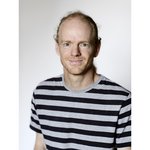
Ayo Wahlberg is Professor MSO at the Department of Anthropology, University of Copenhagen. Working broadly within the field of social studies of (bio)medicine, his research has focused on traditional herbal medicine (in Vietnam and the United Kingdom), selective reproductive technologies (in China and Denmark) as well as health metrics (in clinical trials and global health). Ayo is author of Good Quality – the Routinization of Sperm Banking in China (2018, University of California Press) and co-editor of Southern Medicine for Southern People – Vietnamese Medicine in the Making (2012, Cambridge Scholars Publishing). He is Associate Editor of BioSocieties (Palgrave Macmillan) and has recently received funding from the European Research Council for a 5-year (2015–2020) project entitled ‘The Vitality of Disease—Quality of Life in the Making’.
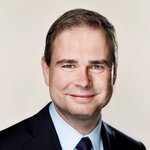
Nicolai Wammen is an elected representative of the Social Democratic Party. He has been so for 20 years. Currently, he is serving his third term as MP in Folketinget (elected in Aarhus), where he is the party’s spokesman on political affairs. The life-long Aarhus-townsman, Nicolai Wammen, was elected to the City Council in 1998. Swiftly, he was appointed to spokeman on political affairs. In 2001 however, he took a leave of absence due to being elected to Folketinget, where he served as spokesman on financial affairs for the Social Democrats. In 2005, he returned to Aarhus, where his time in the City Council summited, with a successful run for the position of mayor in Aarhus. Thereby, Nicolai Wammen restored Aarhus to Social Democratic hands after years of Venstre-reign. During his second term in Folketinget (2011-2015), Nicolai Wammen was chosen as Minister of European Affairs during the Danish Presidency of the Council of the European Union. Subsequently, he was appointed Minister of Defence in the darkest days of terrorism in Denmark. He is cand.scient.pol from Aarhus University.
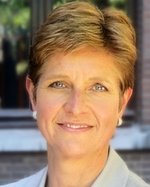
Anchrit Wille teaches at the Faculty of Governance and Global Affairs courses on politics, policy, administration, research design and research methods for bachelor and master students at Leiden University's Institute of Public Administration. She (co-)authored several books and articles on executive politics, political-administrative relationships, accountability, policy advice, institutional dynamics and change, democratic governance, citizen politics, participation and inequality.